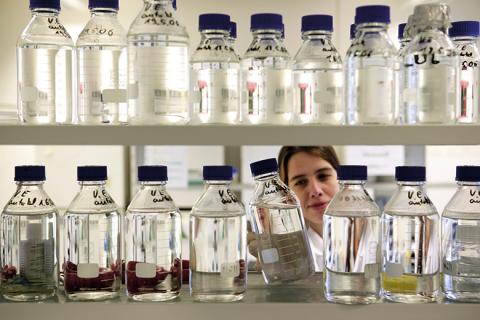My name is Fatima Afzal and this is my story of how I became a female engineer in an international environment.
My experience began when I applied to a British petrochemical company for my industrial placement year, as part of my chemical engineering degree at Aston University. Immediately after accepting the offer I started working in one of the facilities in Malaysia. This provided me with a great platform to launch my engineering career.
As a process engineer trainee working in Malaysia, I was able to understand what it meant to be an engineer outside the lecture theatre. I also experienced at first hand what was required to excel in this field.
It was a different educational experience to one that I had had before; adapting to life in a multicultural hotspot and interacting in an environment where everyone was multilingual.
An added bonus was being able to explore my location, which included visits to Singapore, Tioman Island, and completing my professional scuba diving licence in Indonesia.
Women in STEM
How studying physics can help solve real world problems
On finishing my placement it became clear to me how valuable my time overseas had been in contributing to my personal and professional development. I had gained an ability to quickly link academic knowledge and apply the essential practical skills required in real life, which helped in completing my dissertation. The second was my strong candidate appeal to companies when applying for a graduate job.
One question that I was commonly asked by prospective employers was: “What makes you different from all the other candidates here?” My main differentiating factor was my experience in Malaysia and the ability to work internationally. This meant that my communication and interpersonal skills were above average in comparison to the rest of the candidates there. As a result, I landed a graduate job within a month of starting the application process.
My first graduate job was as a research and development engineer working for a biotechnology company. I was responsible for running and managing research projects on a pilot scale in the UK. I was later asked to take part in projects involving travel and work in the US. Learning how to keep my head above water during my placement meant that I was able to swim in the US by comparison.
I gained further new experiences and skills as a production engineer working in a fast-paced production facility. My first task involved improving existing processes, requiring me to manage and instruct operators on a daily basis. I exceeded expectations by meeting the demands and interacting efficiently in a different culture, again because of my international experience gained in Malaysia.
Looking back, working and living abroad at the start of my career really equipped me with the essential skills to kick-start my career progression. My advice to all future students is to embrace moving outside your comfort zone and participate in placements abroad when given the opportunity.
I am now back in the UK, working in the optical industry as a process quality engineer with the potential to get involved in projects in France and/or Thailand but, most importantly, to continue doing what I love: exploring the world and solving problems.
Read more: What can you do with a chemical engineering degree?

Comments